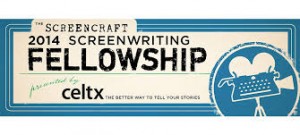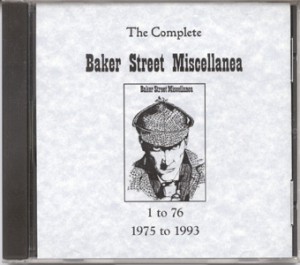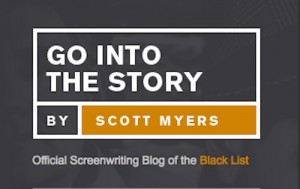Good Reader, today we’ll hit the links once more with a bunch of articles I couldn’t group. So we’ll just toss ’em into the Miscellaneous pile. The goal, as ever, is to help you along on your script-writing journey. Let me know if any of this hits home…
 When you want to learn how to build your house, talk to the guy who BUILDS HOUSES, not the guy who has TALKED to guys who build houses, while building none himself. Carefully avoiding the morass of screenwriting consultant politics (and yeah, I’m one of them), let’s just call this a personal choice. I KNOW there are teachers as well as writers. I KNOW there are plenty of kick-ass writers who can’t teach a lick. I KNOW there are folks who have zero credits on the IMDB board who have helped people in fundamental ways. If it were me, I’d be listening to Writers Guild screenwriters on the art of screenwriting. All this to say that you should check out the Tales From The Script series. Not sure if you know it, but here’s a useful clip as introduction with some heavy hitters talking about the state of the art. A worthwhile nine minutes.
When you want to learn how to build your house, talk to the guy who BUILDS HOUSES, not the guy who has TALKED to guys who build houses, while building none himself. Carefully avoiding the morass of screenwriting consultant politics (and yeah, I’m one of them), let’s just call this a personal choice. I KNOW there are teachers as well as writers. I KNOW there are plenty of kick-ass writers who can’t teach a lick. I KNOW there are folks who have zero credits on the IMDB board who have helped people in fundamental ways. If it were me, I’d be listening to Writers Guild screenwriters on the art of screenwriting. All this to say that you should check out the Tales From The Script series. Not sure if you know it, but here’s a useful clip as introduction with some heavy hitters talking about the state of the art. A worthwhile nine minutes.
- WHY SPEC SCRIPTS FAIL
 Since I’ve been writing for Script Magazine I’ve had a chance to read over most of the contributors’ stuff on the Script Mag blog site. It’s a group of 60+ folks and there’s some good stuff being curated by my editor Jeanne Bowerman. I’m planning on a whole series of Script Mag posts, but for now here’s a taste, written by Stuart Farquhar, about some of the basic reasons why your spec script might be getting rejected. Sometimes the most important reasons are the easiest and most obvious. They’re right under your nose–which is why you can’t see them. This article might help.
Since I’ve been writing for Script Magazine I’ve had a chance to read over most of the contributors’ stuff on the Script Mag blog site. It’s a group of 60+ folks and there’s some good stuff being curated by my editor Jeanne Bowerman. I’m planning on a whole series of Script Mag posts, but for now here’s a taste, written by Stuart Farquhar, about some of the basic reasons why your spec script might be getting rejected. Sometimes the most important reasons are the easiest and most obvious. They’re right under your nose–which is why you can’t see them. This article might help.
- TOP 25 SCREENWRITING TWITTER ACCOUNTS
 Guilty, I am. I did not give a SHIT about Twitter a year ago. Even now, though my followers increased tenfold last year (to a whopping 277!) I’m mostly “too busy” to work it. I post once a week. Which is a pity, because there’s no retreat from the technological reality that is Twitter. It’s upon us, so deal with it. I plan on greater Twitter use in 2015. Script Gods might someday make this list, but for now, check out what’s happening with these Twitter accounts who communicate to thousands of screenwriters. And yeah, some of these are the folks I mentioned above, not necessarily WGA writers of major motion pictures– but good enough as teachers of the art to MAYBE help you. Check out this Screencraft article with their info.
Guilty, I am. I did not give a SHIT about Twitter a year ago. Even now, though my followers increased tenfold last year (to a whopping 277!) I’m mostly “too busy” to work it. I post once a week. Which is a pity, because there’s no retreat from the technological reality that is Twitter. It’s upon us, so deal with it. I plan on greater Twitter use in 2015. Script Gods might someday make this list, but for now, check out what’s happening with these Twitter accounts who communicate to thousands of screenwriters. And yeah, some of these are the folks I mentioned above, not necessarily WGA writers of major motion pictures– but good enough as teachers of the art to MAYBE help you. Check out this Screencraft article with their info.
- EIGHT TELL-TALE SIGNS OF A BAD ACTOR
![]() This one from the Huffington Post might help immediately if you’re casting your micro-budget and are about to step into the audition room. These tips, compiled by Marcus Geduld, Artistic Director of the Folding Chair Classical Theatre, NYC are, in my experience, pretty truthful. Take point 9: “Bad actors don’t listen. They deliver a line, pause for the other actor to speak, and then deliver their next line. When they’re not “on,” they’re off. Good actors know that speaking is just 50% of the job. Listening is equally important. Notice how often, in a film, the shot is the listener, not the speaker. Notice how often, when you see live theatre, your eye is drawn to the actor receiving information. You can’t easily fake listening. You have to really do it. It’s dangerous, because if you listen, and the actor you’re listening to speaks in a way he’s never spoken before, you may have to stray from your plan when you respond.” Check out the list here.
This one from the Huffington Post might help immediately if you’re casting your micro-budget and are about to step into the audition room. These tips, compiled by Marcus Geduld, Artistic Director of the Folding Chair Classical Theatre, NYC are, in my experience, pretty truthful. Take point 9: “Bad actors don’t listen. They deliver a line, pause for the other actor to speak, and then deliver their next line. When they’re not “on,” they’re off. Good actors know that speaking is just 50% of the job. Listening is equally important. Notice how often, in a film, the shot is the listener, not the speaker. Notice how often, when you see live theatre, your eye is drawn to the actor receiving information. You can’t easily fake listening. You have to really do it. It’s dangerous, because if you listen, and the actor you’re listening to speaks in a way he’s never spoken before, you may have to stray from your plan when you respond.” Check out the list here.
- THE DEFINITIVE SPEC SCRIPT LIST
 Tell me you’re hip to GO INTO THE STORY. Yes? No? It’s right there with the John August blog, Indiewire, and No Film School, as the top filmmaking blog. Go Into The Story is even more writer-centric and the list Scott Myers has compiled here is staggering. He and his team has spent Christ knows how many hours putting it together. In his own words: “Pretty much ever since I sold a spec script in 1987, I have been fascinated by them. The very idea that a writer could conceive a story concept, research, craft and write an original screenplay, then sell it to a Hollywood buyer is in and of itself a remarkable thing. When you consider that each year an estimated 25,000-40,000 stories filter through the studio acquisition system and only about 100 spec scripts sell annually, that makes it even more notable.
Tell me you’re hip to GO INTO THE STORY. Yes? No? It’s right there with the John August blog, Indiewire, and No Film School, as the top filmmaking blog. Go Into The Story is even more writer-centric and the list Scott Myers has compiled here is staggering. He and his team has spent Christ knows how many hours putting it together. In his own words: “Pretty much ever since I sold a spec script in 1987, I have been fascinated by them. The very idea that a writer could conceive a story concept, research, craft and write an original screenplay, then sell it to a Hollywood buyer is in and of itself a remarkable thing. When you consider that each year an estimated 25,000-40,000 stories filter through the studio acquisition system and only about 100 spec scripts sell annually, that makes it even more notable.
I didn’t start tracking all spec script sales until 1991, but then I tried my best to note the details whenever I learned about them. Over the years I often thought about those files and wouldn’t it be great to have a comprehensive list of all spec script sales in Hollywood? Here are some reasons why:
* To create an historical record of these special accomplishments by screenwriters in the movie business.
* To compare what spec scripts sold and got produced to those that never got made.
* To track buying trends in Hollywood [e.g., genre, high-concept].
* To create a resource for contemporary writers to brainstorm new story ideas.”
The Millennials I teach don’t understand. You didn’t use to be able to get a list like this ANYWHERE, let alone free. This is an invaluable look at what got bought, broken down in categories such as Writer–Logline–Agent–Agency–Studio–Production Company–Price Paid–Genre & Date Sold. This list goes back to–I shit you not–to 1991!
Check it out here.



